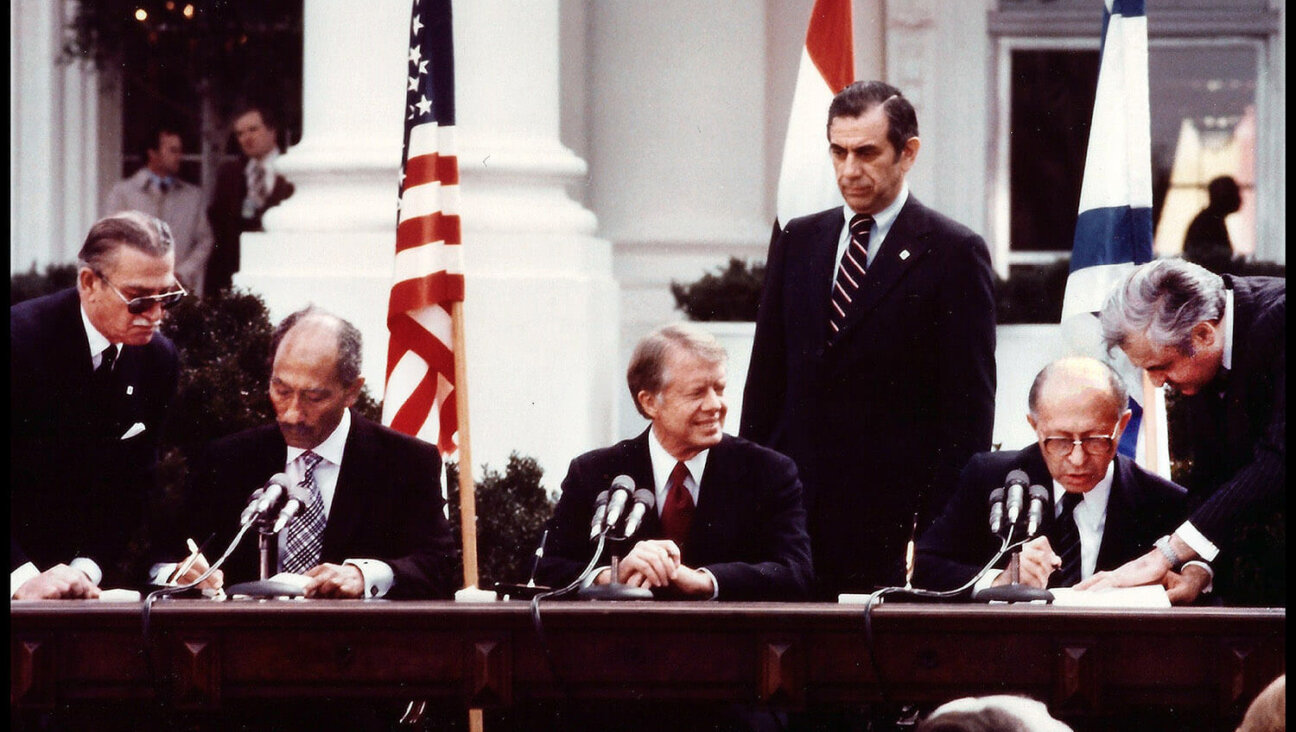Life of a Salesman: A Son’s Tribute
When I was a kid, my father told me he couldn’t read or watch “Death of a Salesman.” It hit far too close to home. Of course, this inspired me to read the play over and over again. Arthur Miller’s masterpiece affected me in ways I’m still figuring out, but I’m certain of two things: Miller gave me the dream of becoming a writer, and he showed me how to begin to understand my father.
My father is a salesman, my grandfather was a salesman and my great-grandfather was a salesman. So growing up on the edge of Northeast Philadelphia, I felt bound to become a salesman myself.
My father works as a manufacturer’s representative, a middleman, selling textiles for various mills. He sells to companies that make clothes. He works on commission — usually 1 or 2 % — with no guaranteed salary and no benefits. My grandfather started the business in 1926. My father followed in his footsteps, and they shared a small office for close to 60 years. For the last 22 years, my father has had the office to himself. These days, he doesn’t travel as much as he used to, but he’s still often on the road, visiting old clients.
When I was around 10 years old, my father took me on the road with him occasionally. Maybe there were a half-dozen trips, maybe there were more, but the morning rituals were always the same. When my father finished shaving, he woke me up, the sharp smell of his aftershave filling my room. He’d tell me to hurry up, to be quiet, and I’d hustle to get ready. I was wearing small leisure suits back then, eating bowls of sugary cereal for breakfast. We slipped out of the house in the dark, and I couldn’t wait to climb into the front seat of the car. I was the co-pilot for those trips.
My father’s business cars were a world unto themselves, a world in which my father seemed to live at least half his life. There was a silver Plymouth Sport Fury that didn’t last long, a brown Datsun 280Z 2+2 and then another, but most of the time he was behind the wheel of a Chrysler New Yorker, an enormous sedan that rode like a luxury liner.
My father kept everything he needed within easy reach. He had a razor that he could plug into the cigarette lighter. There were mints and NoDoz pills, sunglasses, tan leather driving gloves that snapped around his wrists. I can remember the 8-track tapes (Beethoven, Glenn Miller, The Brothers Four, The Beatles, Simon & Garfunkel). For a while there was a CB radio, and Dad’s handle was Pathfinder.
Despite the salesman stereotype, my father never has been much of a talker, at home or at work. We were quiet when we left the house and we stayed quiet in the car. I could have drifted off to sleep — that would have been fine — but I wanted to stay awake. I stared out the big windshield, hoping to see something that would give me an excuse to break the silence — an exotic license plate, a low-flying plane. I was a little kid, and I wasn’t going to make a sale or close a big order, but as the sun rose I still could feel the possibility of the day stretched out before us.
Everywhere we stopped, people were happy to see us. Secretaries offered me doughnuts and cups of apple juice. Someone else gave me a purple velour shirt and told me the kids at school would be jealous. A few people took me on tours, leading me through rooms with endless rows of men and women at sewing machines, the sound of their hard work almost deafening.
In factory after factory, people joked with me, telling me that I looked like a smart little businessman. Then one day, outside a conference room in Baltimore, a buyer put his hand on my shoulder. He had jeweled rings on a few of his fingers. “Someday you’ll be taking over for your father,” he said. “Do you think you’ll be as good a salesman as he is?”
“I think I will,” I said. “I’ll try.”
“I’m glad to hear it,” the buyer said. “But you need to remember that it takes a lot of work to close a deal.”
My father didn’t say anything, but I could tell from the way he shut his briefcase that he was angry. He still was angry when he tossed the briefcase into the car and slammed the trunk. Inside the car, he started to calm down. “I want you to understand something,” he said, looking over at me. “You are not going to be a salesman.”
“Why not?”
“Because it’s a miserable job,” he said. “That’s why not. Because I wish I wasn’t a salesman and I don’t want you wishing the same thing someday. You can be whatever you want when you grow up, just not a salesman. Okay?”
“Okay,” I said.
He slipped the keys into the ignition and started the car. “I’m glad we got that out of the way,” he said. “Wish my father had done the same for me.” Then he shifted into reverse, stretched his right arm across the bench seat and turned his head like he always did so that he could back up. I could see that he was smiling now. “Don’t get me wrong,” he said. “You could easily be as good a salesman as I am, but you’re going to do something better.”
That was the last business trip I took with my father. He gave me the college education he longed to have, pushed me to become a doctor when that was what I dreamed of, and then pushed me to become a writer when Arthur Miller helped me discover that was what I wanted to be.
Still, those road trips have stayed with me, shaping not only what I write but also how I write. For instance, I like to be in my study early in the mornings. When the work is going well, I’m in my chair in time to watch the sunrise. I see it brighten the room, and I can feel the day opening up in front of me like a clear highway, full of promise.
Edward Schwarzschild’s debut novel, “Responsible Men,” the story of three generations of salesmen, was recently published by Algonquin Books.
A message from our Publisher & CEO Rachel Fishman Feddersen

I hope you appreciated this article. Before you go, I’d like to ask you to please support the Forward’s award-winning, nonprofit journalism so that we can be prepared for whatever news 2025 brings.
At a time when other newsrooms are closing or cutting back, the Forward has removed its paywall and invested additional resources to report on the ground from Israel and around the U.S. on the impact of the war, rising antisemitism and polarized discourse.
Readers like you make it all possible. Support our work by becoming a Forward Member and connect with our journalism and your community.
— Rachel Fishman Feddersen, Publisher and CEO























